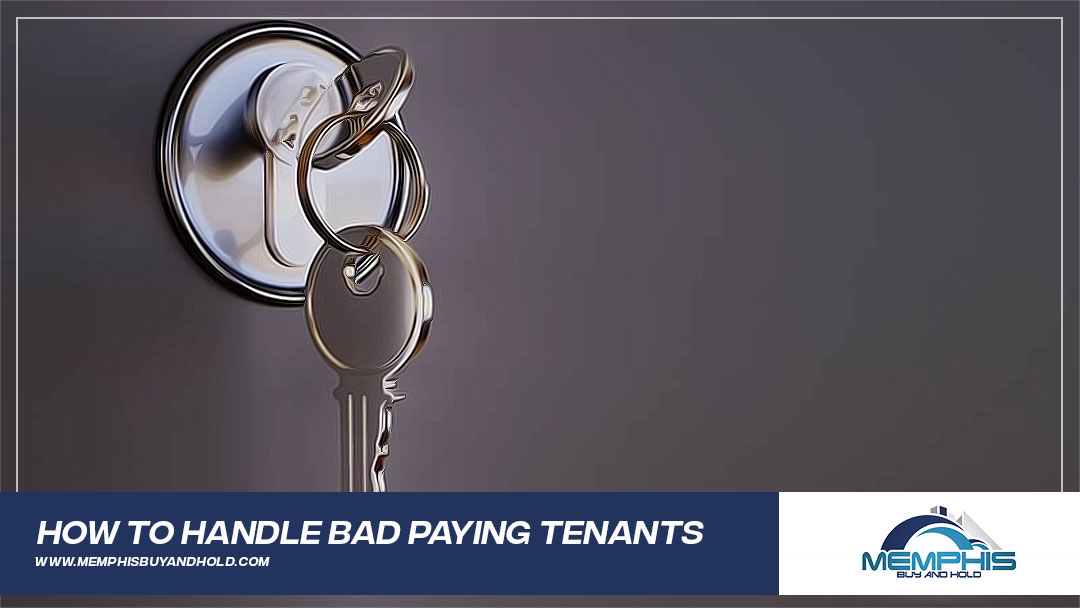
Bad payers are a problem for all landlords and we’ve all found different ways to deal with the problem. The best solution is one that gets the tenant back on track and avoids a costly eviction.
I use the term “bad payer” to cover late payers, partial payers, check bouncers, and non-payers. There are a number of ways to deal with bad payers. First, you want to do everything in your power to ensure that all tenants pay on time, every time. For example, set up a schedule of discounts for on-time payments or late fees for late payments. Many landlords favor the discount approach because it is an easier sell to a prospective tenant, but you may find it is not as effective in reducing late payments. Why? Because there’s no stigma attached to not getting a discount.
Often people have good intentions about paying on time but don’t remember to make payments. Two ideas may help you here. One is to send out rent invoices. Your tenants get a bill each month for everything else they have to pay – why not their rent? Another is to offer an automatic payment plan. There are companies that you can use to set up automatic payments by direct withdrawal or by credit card. Again, these methods presume good intentions on the part of the tenant.
What do you do with a chronic late payer? First recognize that there are gray areas here. I believe your actions should depend on whether the lateness is consistent – for example, the tenant always pays between the third and sixth day of the month – or gets worse over time. A tenant whose lateness gets worse every month, despite your late fees and complaints about late payments, probably has little regard for your authority. When he is late enough to warrant an eviction notice, send it, and follow through. Chances are you’ve already seen other signs that this person is irresponsible- he doesn’t return your calls and may have misbehaved in other ways in the unit.
On the other hand, a consistent late payer is probably worth keeping, even if you can never get him to pay on time. Consider that the late payments are actually improving your bottom line. For example, suppose I have a tenant who always pays about the sixth day of the month, and is charged a $5 per day late fee on a $600 monthly rent. This tenant is giving me a 5% rent increase in exchange for a few days lateness – I’ll take that. Another consideration is how long it will take you to re-rent the unit. My properties are in New Hampshire and it’s very difficult to find a good tenant during the winter. If I evict my $600 per month tenant for late payments in November, and don’t find a new tenant until February, that’s $1,800 out the window. Better to put up with the late payments (and enjoy the late fees).
A partial payment is the same as a late payment. If a tenant pays $400 on time and sends the other $200 on the sixth day of the month, he’s late – and must pay the late fee. A bounced check is worse than a late or partial payment. Now you have to pay a fee to the bank and the good check will still be late. Charge both the late fee and the bank fee to the tenant. More than one bounced check and you should require that the tenant start paying with a bank check or money order. Many landlords insist on bank checks or money orders for all tenants, regardless of their payment history, but this has disadvantages. One is that they are inconvenient for tenants. Another is that if a bank check gets lost in the mail, it is harder for the tenant to void it than for a personal check.
You may want to cut extra slack to tenants who let you know ahead of time that their payments will be late. This is usually because the tenant is short on cash. If the lateness is not excessive -three or four days at most – I will waive the late fee. But if I start getting calls like this every month or every other month, I will charge the late fee.
When a tenant tells you he can’t pay full rent on time because of financial trouble, get more details about his problem. The big question is whether his cash crunch is caused by a one-time expense or loss of income, or a permanent or long-term change such as a layoff. If the cause is a one-time expense, chances are he’ll get back on his feet and be able to pay in full on time next month. He still owes you the money for the current month and you can make a separate agreement for this payment. Make sure he knows that violating the separate agreement or paying the next month’s bill late will result in eviction. And if you do make a separate agreement, run it by your attorney to make sure it is legal and enforceable.
The tenant in this situation may also be able to find money from another source to pay the current month’s rent. In my city, the public assistance office will write a one-time check for a tenant who has a cash crunch but is working at a job and can generally afford the unit. However, they won’t make assistance payments every month. Check this with your own local office.
A tenant who can’t pay because of job loss or a permanent new expense can no longer afford the unit. He has to either increase his income or reduce his expenses right away, or move out. Maybe the tenant could get a roommate who can split the rent. Maybe he can get a second job. If not, try to convince him to leave voluntarily, without a formal eviction. It’s better for him, because he won’t owe court costs, and will leave with as much of his assets as possible. But if he won’t leave voluntarily, you must evict, as soon as possible.
Memphis Buy And Hold is specializing in locating, purchasing, renovating and managing single-family and multi-unit properties and possesses from 2007 up to the present of experience in real estate investing and property management in the Memphis and Nashville markets.
- Memphis Property Management
- Memphis Turnkey Investment Properties
- DCC Rentals LLC
Discover more from Memphis Buy And Hold
Subscribe to get the latest posts sent to your email.


